On August 16, Ambassador Qin Gang took a joint interview of the U.S. mainstream media in Washington DC, including Reuters, Associated Press, Bloomberg, National Public Radio, The Washington Post, The Wall Street Journal, The New Yorker, The Hill, POLITICO, Axios, Defense One, and he answered questions on China-U.S. relations, the Taiwan question, Hong Kong-related issues, and China’s diplomacy.
The transcript of the interview is?as follows:
Josh Rogin (The Washington Post):?Mr. Ambassador, thank you so much?for?taking time today. Recently, your counterpart in Paris, Chinese ambassador?in France, said on two separate occasions that the Chinese government was planning for reeducation of the Taiwanese people after reunification. Can you explain to us what that means? What does that look like? Is the?reeducation modeled after?Hong Kong? Or is it modeled after?Xinjiang? Is it modeled after Tibet? What kind of reeducation are you planning?after reunification?
Ambassador Qin Gang:?I don't know under what circumstances and?in what context our Ambassador said this. But?my personal understanding is that people on both sides of the Taiwan Strait are Chinese and the mainland and Taiwan belong to?one and the same China. We need to reinforce the identity, our?national identity.?So I think this is what he really means, but I can't speak for him.
Josh Rogin:?A quick follow up. You mentioned?that in your op-ed in?The Washington Post that published it that peaceful reunification?is?the preference,?and that seems to me that you need to?persuade the Taiwanese?people to join back with China voluntarily. How's that going? How goes your efforts to win the hearts and minds of the Taiwanese people??You?think it’s?working?
Ambassador Qin Gang:?As a matter of fact, over the past years the mainland has?done many?things to?promote?the?peaceful development of cross-Strait relations. We?have shown?our goodwill. Taiwan is a small?place. Its market is limited, and there's not big room for Taiwan to develop its economy and livelihood. The future of Taiwan depends on the reunification with the mainland, and over the past?decades, we’ve?done so much. For example, there are one million Taiwan people living on the mainland. They are happy. They are doing their business,?and they are opening their factories.?They are studying?on the mainland.?Over the past years, the trade volume has doubled to more?than $320 billion. Taiwan enjoyed $170 billion in surplus. The mainland is the largest trading partner?and the largest source of trade surplus for?Taiwan,?and we have very frequent travel?across the Taiwan Strait. I think that helps the understanding, mutual understanding.
Josh Rogin:?So why do you think that the Taiwanese people overwhelmingly say?they don't want to join?the mainland?
Ambassador Qin Gang:?We try to achieve peaceful reunification. It is our wish, because we believe that serves?interests of the people on both sides of the Taiwan Strait. People?on both sides are compatriots.?The last thing we do is fight with our compatriots. We will make?our utmost efforts?and show the greatest?sincerity to achieve peaceful reunification. The reason for us not to renounce non-peaceful means for?reunification?is?not targeting?at?the Chinese people?in Taiwan.?It is to deter?a small number of separatist?forces?and to deter foreign?intervention. For the arrangements after the reunification,?we have proposed?the philosophy of “One Country,?Two Systems”. This is?the best design for Taiwan. “One Country, Two Systems”?was first put forward to resolve the Taiwan question. We believe it has fully considered Taiwan's realities, and it's conducive to Taiwan's long-term stability and prosperity.?As for how to deliver it, we will take suggestions from people on both sides of the Taiwan Strait and fully accommodate the interests, sentiments of?our?brothers and sisters?in Taiwan. “One Country, Two Systems” is still the most inclusive?solution to resolve?the Taiwan question.?It’s?a peaceful,?democratic and win-win solution that shows our goodwill. Different political systems?are not an obstacle to reunification and they are not a?pretext to separate Taiwan from China. So we believe that as the Chinese nation realizes?reunification,?there will be greater room?and possibilities for the implementation of the Taiwan solution of “two systems”.
Steve Clemons (The Hill):?Ambassador, if I may, you have said very specifically that the U.S. said that you're looking at Pelosi trip as an excuse for China to set a new normal,?basically saying that China was escalating the situation.?One of the features that I saw in this was that a lot in?the administration have serious reservations about Nancy Pelosi’s trip.?We actually saw they were divided?within the administration. So who in the administration is actually telling you that China is using this pretext to change the status quo?
Ambassador Qin Gang:?It's not a secret to us. Last Friday I think,?a?senior official of the National Security Council did?a press briefing, blaming China for escalating the situation and using the visit as a pretext.
Steve Clemons:?So it’s?Kurt Campbell.
Ambassador Qin Gang:?It’s on the record.?It’s recorded in the media.
Phelim Kine (POLITICO):?Mr.?Ambassador,?a?quick?question,?we've seen (inaudible) of the United States, in Missouri?and Pennsylvania?and other places, where the idea of China threat is a big part of the political?rhetoric, political?discourse. It seems pretty likely that the fallout in this country from the PLA's response to Pelosi’s visit?to?Taiwan is gonna accentuate that.?And I guess my question to you is, are you concerned that we're going to see this idea of China threat being part of midterm election rhetoric??I wonder,?do you have a message to U.S.?lawmakers and to U.S.?voters about how they should be seeing?China? Thank you.
Ambassador Qin Gang:?I’ve been here as?the ambassador for a year. And I have found?that I’m in?an?environment of?“threat-phobia”.?My country is being greatly mis-perceived and miscalculated as a challenge or even a threat to the United States, as you mentioned just now. And this relationship,?which is so important and so consequential,?is now being driven by fear, not by common interests and common responsibilities. If you listen to the words and see the behaviors of the politicians in this country,?it's not difficult to draw this conclusion.?But I want to say that China is not a threat, it's not a challenge. China’s development?intention is just to get a better life for its people.?We have no intention to?replace the United States and to destroy the United States. We just want our people to lead a happy life. We need a peaceful and cooperative?external environment, including,?particularly,?our relations with the United States, so that we?can focus on our domestic construction. But sadly, our intention is misunderstood.?So I do hope that people can get rid of the “threat-phobia”?and not blame China for everything,?every problem of this country. China and?the United States are different. China cannot change the United States. The?United States cannot change China. We have differences. But differences cannot justify?groundless?blames and crazy,?unreasonable words?and deeds. And we should not let?differences and?disagreements stand?at the center of the stage of our?relations.?We should not let them define our relations. If people?handle this relationship out of fear?of China, it will cause?tensions, tensions after?tensions. It will put our relations on a?wrong track,?and very dangerously lead?our?relations?to the course or direction of conflict and confrontation.
Mary Louise Kelly (NPR):?There's been a lot of conversations in Washington over what lessons China is?taking?from Russia’s invasion of Ukraine. And I wonder if you would answer that.?What are you learning?as you watch the war?unfolding in?Ukraine? Do you see parallels? Do you see differences?
Ambassador Qin Gang:?I don't know what lessons the United States should take from the Ukraine?crisis. China is not a party in the crisis, not in history, not in reality.?Everybody knows the root cause of?the crisis. This is not between China?and Ukraine.?China is not NATO. Why this crisis happened? There are historical complexities?and realistic considerations. What Russia wants cannot be given by China. China is a force for peace. At the very beginning of the crisis, China calls for peace, for?ceasefire, for political solution?through diplomatic consultations. And we don't send?weapons, ammunitions.?What China has sent to Ukraine are sleeping bags, medicine, humanitarian aid.?So if there's any lesson to be drawn?by the United States, by NATO, or by other parties involved,?maybe that is how to achieve security.?A country cannot build its security at the cost of other countries. And all countries’?legitimate security concerns have to be taken into considerations. It's not a zero-sum game, and Cold-War mentality is not a solution to?security issues?in modern world.
That's why President Xi Jinping has proposed the Global Security?Initiative,?calling for all countries?to?join hands in building up a security which is common, comprehensive, shared?and sustainable. I do hope that sooner or later?the parties concerned in the?crisis?will?come to the negotiation table to find a way out of the current difficulty, so that people can negotiate a future framework?of the security.
David Ignatius (The Washington Post):?Mr. Ambassador, I'd like to ask you about strategic stability between the United States and China.?You spoke?in Aspen,?I remember,?about the importance of stability between the two countries.?President Biden,?last November?in his phone call with President Xi, proposed?that there be talks about strategic stability between these two nuclear powers. But so far as I know, those talks have not proceeded to any meaningful level despite your comments?in?Aspen?and?other Chinese comments. So a question at a time when the tensions between the U.S.?and China are so obviously high and dangerous over?Taiwan:?Is China ready for these conversations? And do you expect that President Xi and President Biden may?meet together this year for discussion of this and other issues?
Ambassador Qin Gang:?First of all, on the possible?summit between the Presidents, I have no idea at the moment. I?have no information to share with you on this. And on strategic stability, of course China values?a stable relationship?with the U.S.,?and we also believe that?as members of P5, China and the United States?share?common responsibility for world peace and stability.?We want to have communication and?dialogue with the U.S. side on this. But our understanding of?strategic stability?is not only about the military. It's not only on military terms. Actually it’s?about political foundation. It’s?like a house. For?this house?to be?firm and stable,?we need a solid?foundation. The same theory applies to state-to-state?relations. So what is the foundation of China-U.S. relations? That is the one-China principle.?That is the stipulations?of the three joint?communiques. We cannot talk about strategic stability without paying attention to the political foundation of our bilateral?relations. If the political foundation, particularly the one-China principle is eroded, undermined,?the whole building of China-U.S.?relations will be shaken, and it's not good for our two countries and not good for the world.
Paul Beckett (The Wall Street Journal):?(inaudible) Some cooperation between the two countries has suspended after Pelosi’s visit, such as on climate. What do you want to see the United States do to resume cooperation?
Ambassador Qin Gang:?About climate change?
Paul Beckett: Any of the places that are?frozen, what do you want to see?for change?
Ambassador Qin Gang:?We are taking countermeasures. They shouldn't be surprised. Because?before the visit, we warned?the U.S.?side?time and again that if she goes, it will have serious consequences on our exchanges and cooperation between our?two countries. So it happened. And we mean what we say. We suspended dialogue,?communication and cooperation?on some subjects,?in some areas, including climate. Now the U.S. said that, by?suspending the climate?dialogue, China?is punishing the world. but the?question is, does the?United States represent the world?
Paul Beckett: But what do you want to see in order to resume?
Ambassador Qin Gang:?To resume, I?want to see the United States?at the moment to?think about its own behavior?on Taiwan, to reflect on what the true one-China principle is,?and to refrain?from doing anything more to escalate?the tension, because there are some worries around these days?in?China?that the?U.S.?will take?more actions, politically,?militarily.?If they happen, it will cause a new round of tensions and China will be?forced to react.
Paul Beckett: How do you view the subsequent congressional delegation?
Ambassador Qin Gang: We object to it?from the very beginning.?Over the past decades, China has opposed?congressional visits to Taiwan, because we believe that they are in violation of the one-China principle and the three joint communiques. They violate the commitment of the United States?of?not developing?official relations with Taiwan.?Congress?is?part of the government of the U.S..?It's not an independent, uncontrollable branch. It’s obliged?to abide by the foreign policy of the United States.?So that's why we?object to and are very dissatisfied with Senator Markey’s?visit to Taiwan. It’s?provocative and?unhelpful.
Ellen Knickmeyer (AP):?The U.S.?says it's going to send?warships through the Taiwan Strait, as part of?what?(inaudible) in the area?routinely. Is that a provocation? What’s China's response to that?
Ambassador Qin Gang:?The U.S.?side has done too much and gone?too far in this region. Since 2012, the U.S.?side?has had more than 100?navigations?through the Taiwan Strait, intensifying?the tension and emboldening?“Taiwan?independence”?separatist?forces.?As you?have?mentioned earlier, we have noted what the U.S.?military said these days,?that they would have a?military?exercise or navigation again.?But I do call on American colleagues?to exercise restraint, not to do anything to escalate the tension. So if there's any move damaging?China's territorial integrity and sovereignty, China will respond.










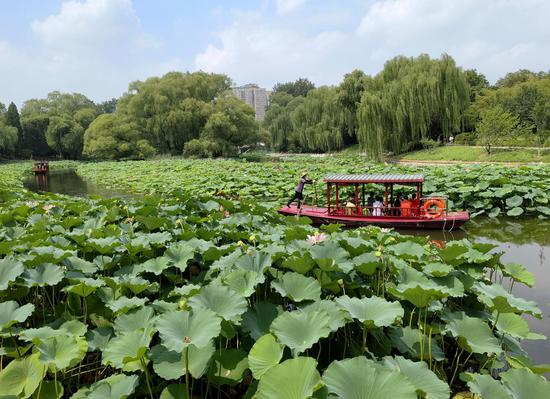
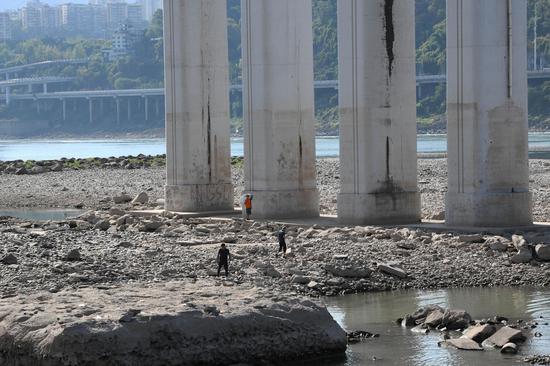
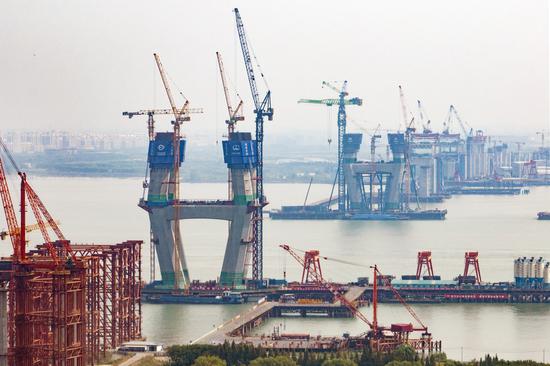
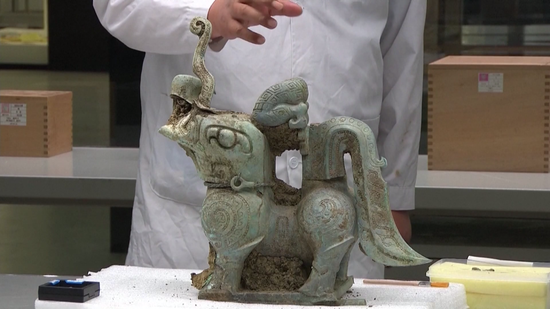
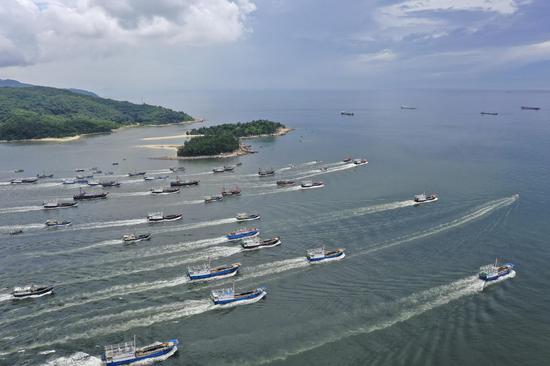


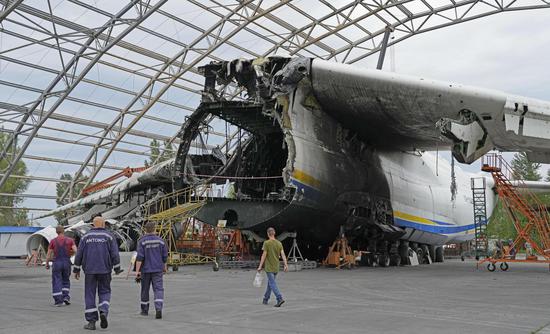
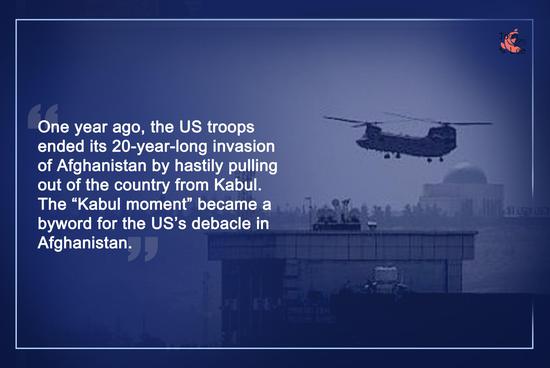
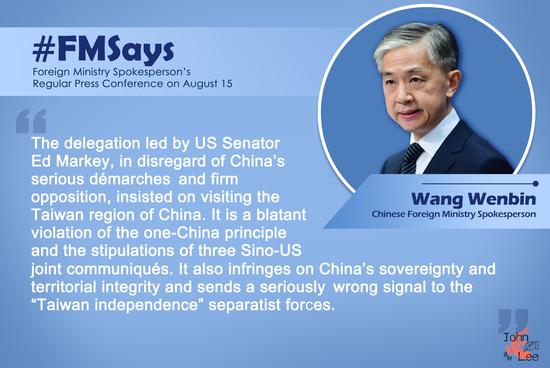

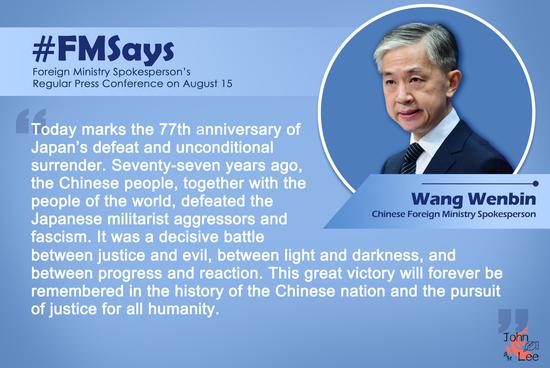
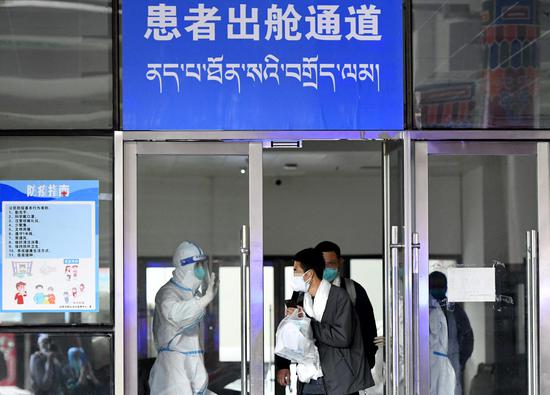
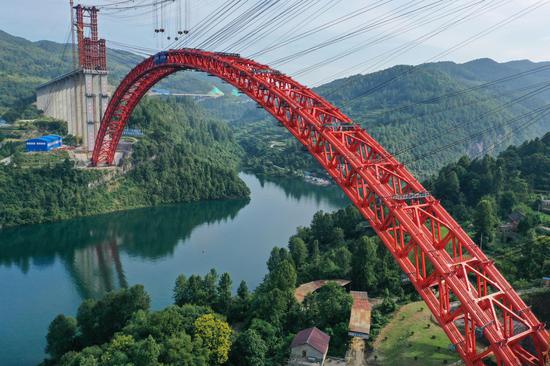
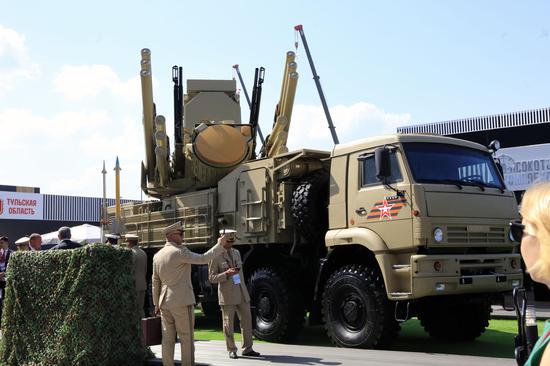
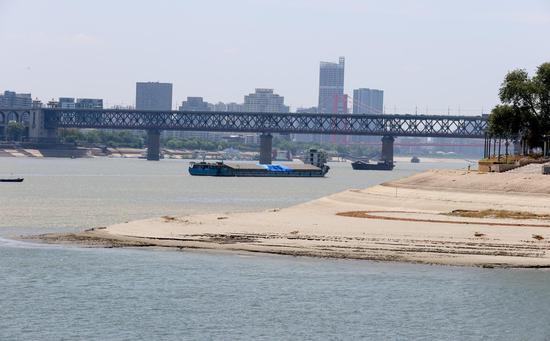
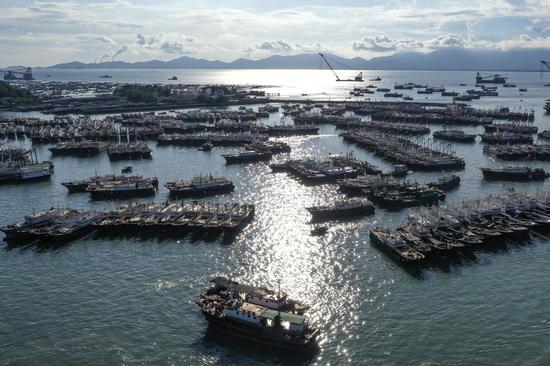
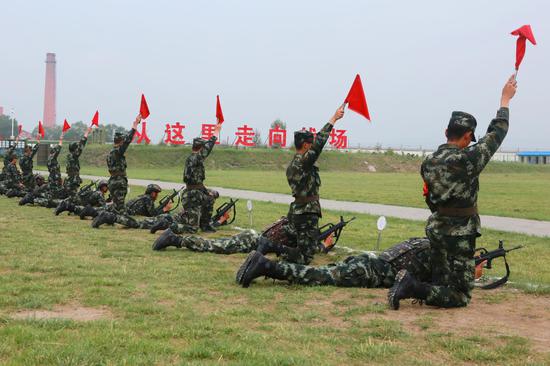
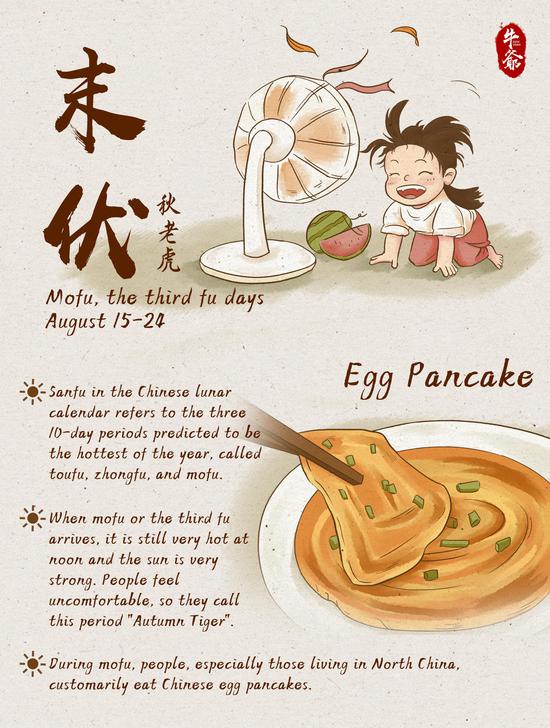
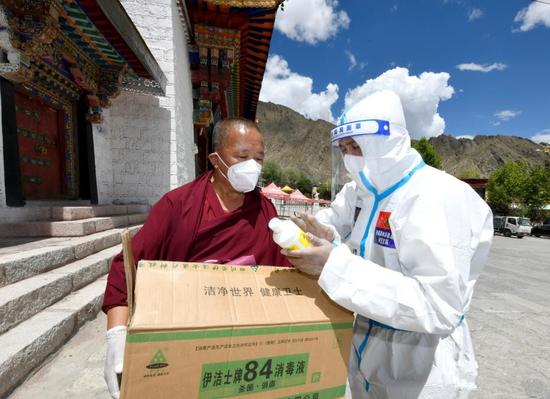
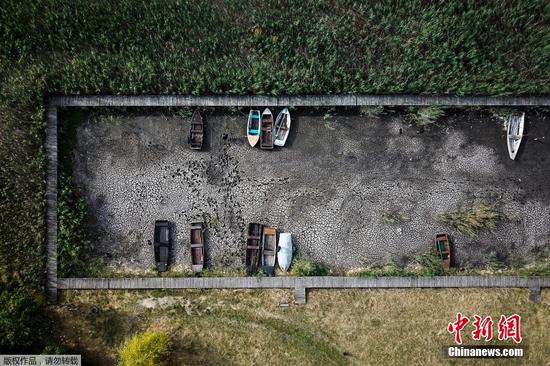
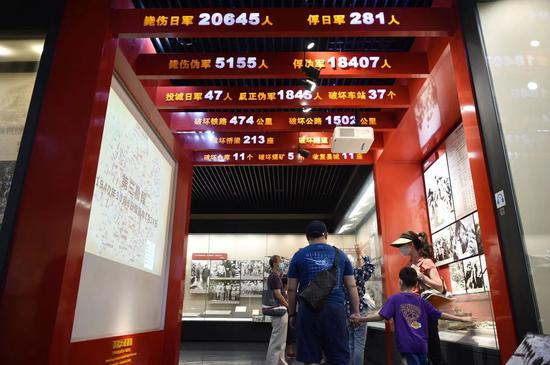
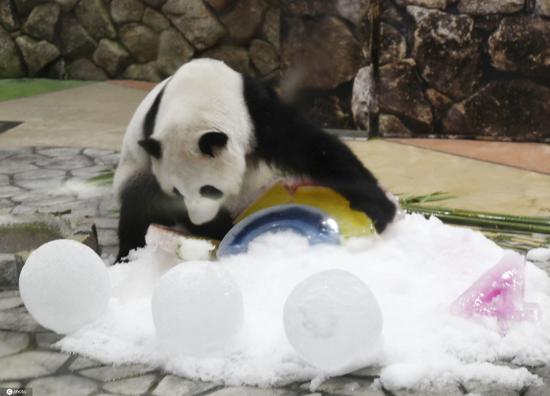
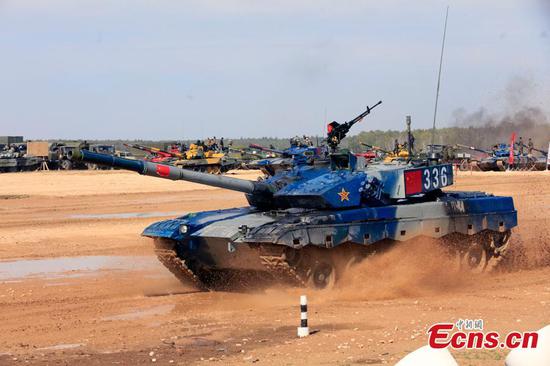
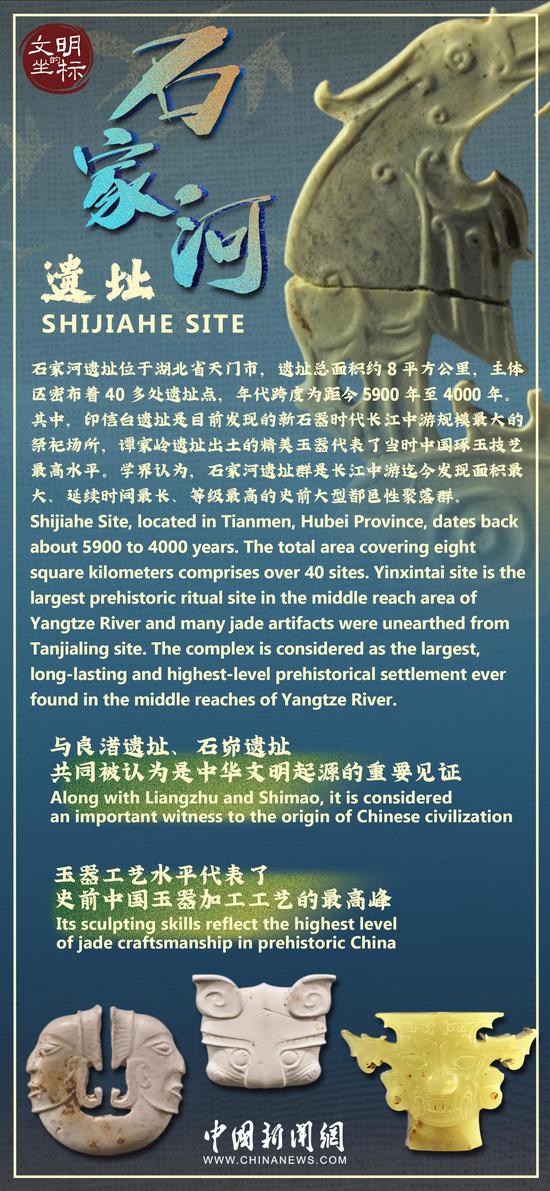
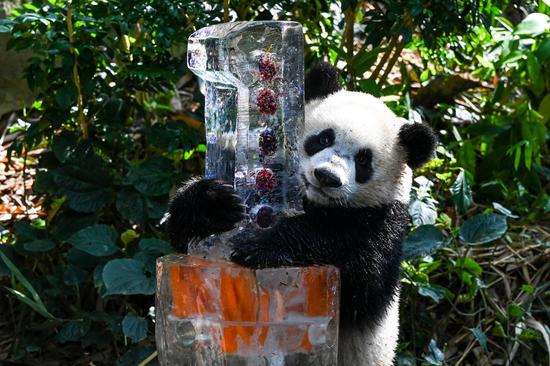
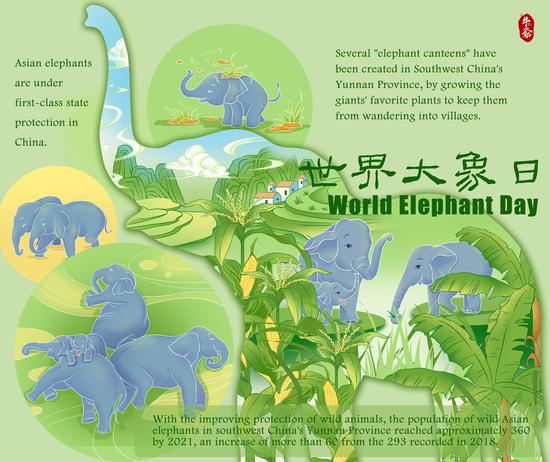
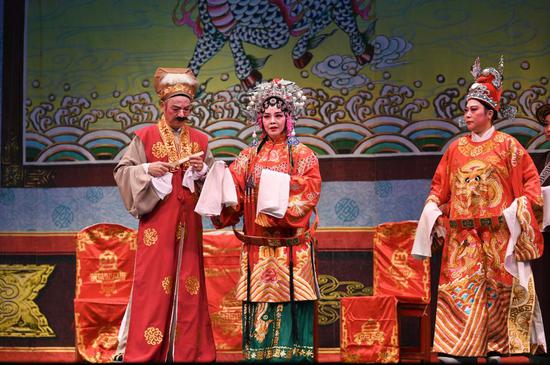
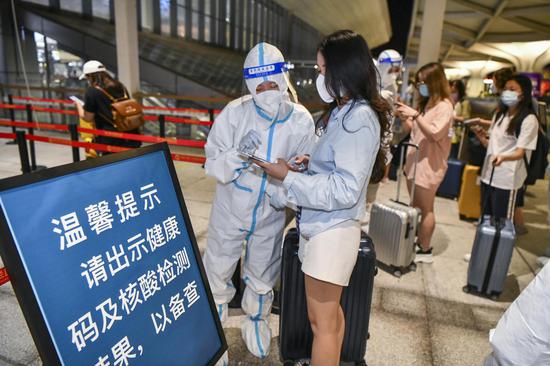
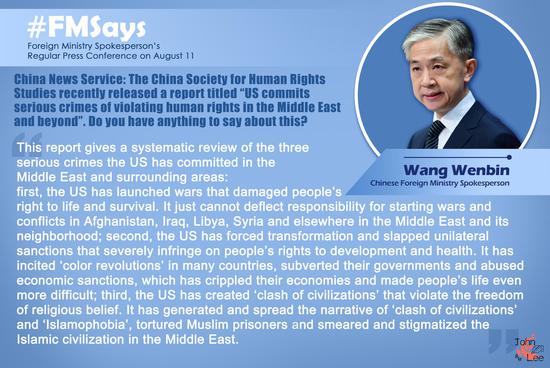
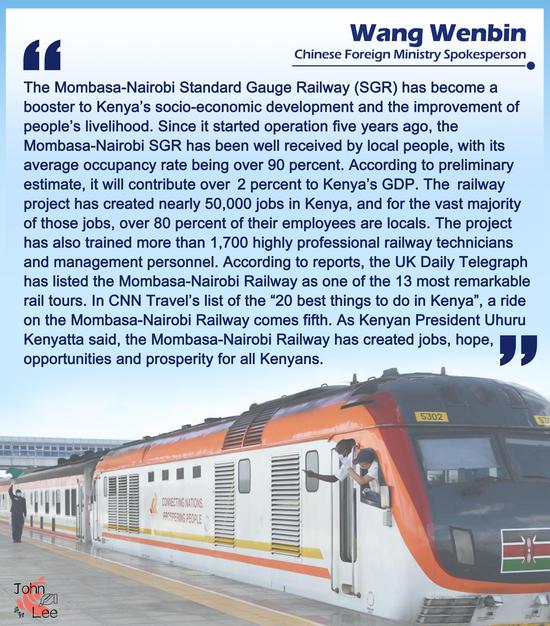

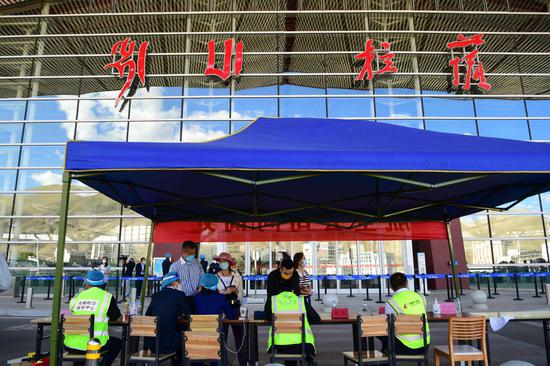
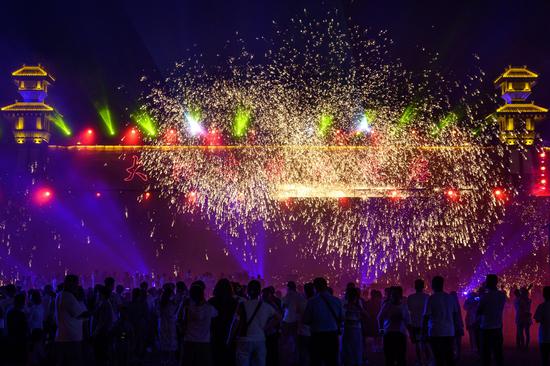
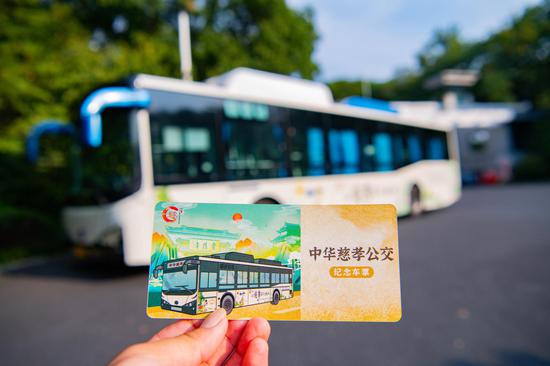



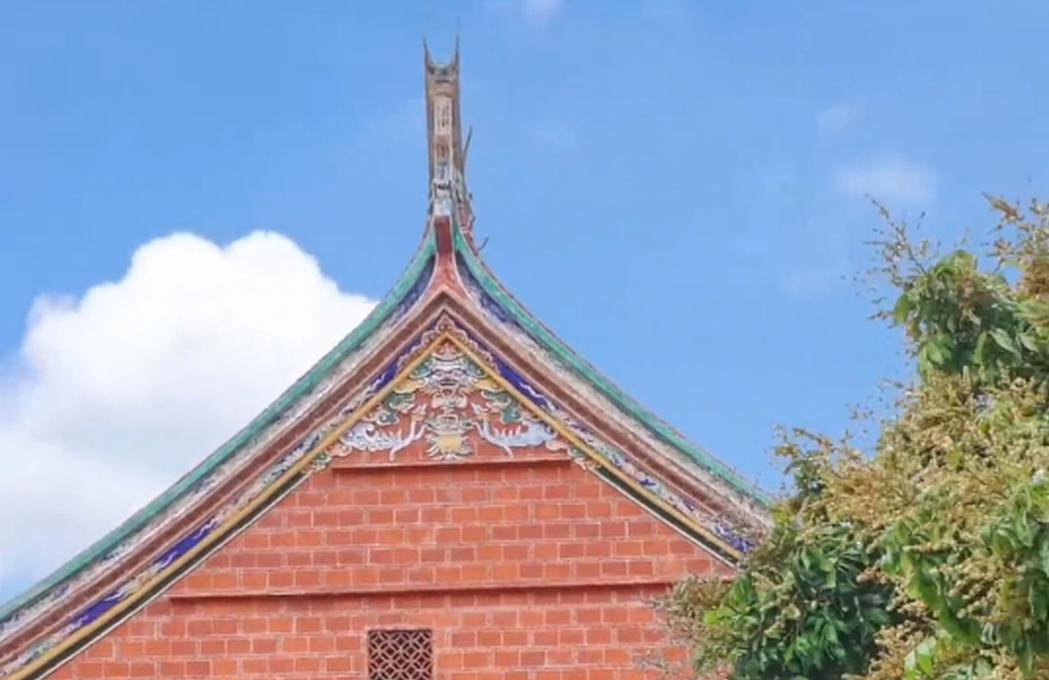

 京公網(wǎng)安備 11010202009201號(hào)
京公網(wǎng)安備 11010202009201號(hào)